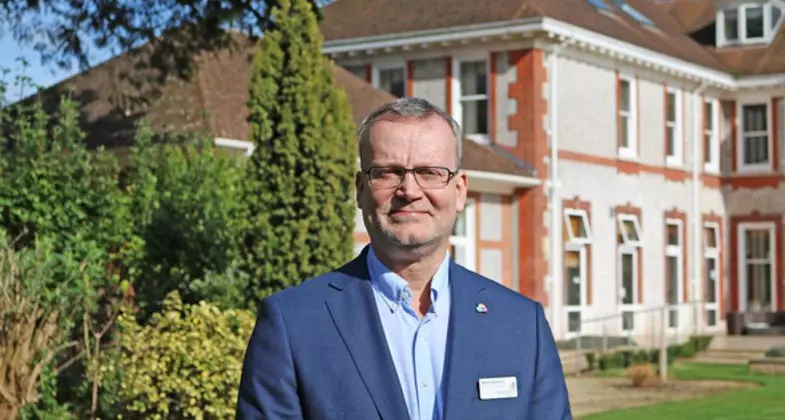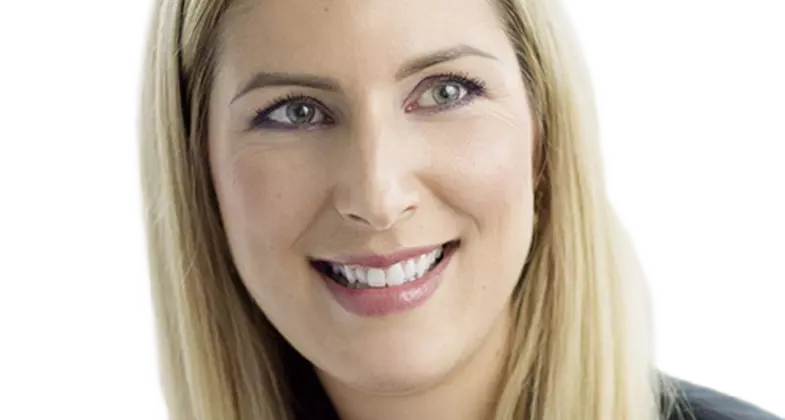Transformational Leaders: Mark Hawkins, Chief Executive of Rowcroft Hospice
In a sector ripe for disruption, many not-for-profit organisations are looking to recruit talent from outside the sector to ensure they stay ahead of the curve and maintain their competitive edge. In the first of our ‘Transformational Leaders’ series, Sandra Hamovic, Principal Consultant in Berwick Partners’ Not for Profit Leadership Practice, talks to Mark Hawkins, Chief Executive of Rowcroft Hospice, about his transition from the corporate world into the not-for-profit sector.
I first met Mark when he was working at award-winning agency, The Moment, engaging audiences through the creation and delivery of video, interactive and immersive content, learning and training. As CEO, Mark was responsible for strategic growth, operational efficiency and direction of the business, leading a highly talented team of creative professionals to deliver on The Moment’s vision of being the most creatively admired content company.
At the time, like many other charities, Rowcroft Hospice had been affected by the economic uncertainties created by the recession and had been undermined by the vagaries of any reliance on legacy income. The hospice was ready to embark on a new business strategy with the well-established and experienced executive team ready to support a successful candidate. The new Chief Executive would have the opportunity to shape and lead the future of hospice care in South Devon, by developing business plans fit for purpose in a rapidly changing healthcare economy.
The Trustee Board tasked Berwick Partners with finding an individual with proven and inspiring leadership skills, a successful record in business, the aptitude for skilled and sensitive management of staff and the ability to profitably engage with stakeholders.
Mark stood out as a strong strategist, who had the ability to identify potential opportunities for business growth. In addition, his substantial leadership experience coupled with his ability to lead change through people, and a management style that empowers others, secured him the role at Rowcroft Hospice.
Now, over two years into the role, I wanted to talk to Mark about his transition and the impact he has been able to make.
Mark, what inspired you to want to work in the not-for-profit sector, and in particular Rowcroft Hospice?
I have had a very successful commercial career working for many organisations (PLCs, family business and private equity owned businesses) and across many sectors, and I felt the time was right to use that knowledge and expertise to help support a local charity which had been through some challenging times. To be honest, I also regretted not supporting charitable activity more during my career and the timing was perfect to make a change.
I was drawn to Rowcroft for three reasons. Firstly because of the passion of everyone I met. Yes, I know it’s a cliché, but doesn’t everyone want to work with colleagues who are passionate about what they do? Secondly, the amazing care Rowcroft provides across its community. And thirdly, I knew I could make a big difference as Rowcroft had faced some tough decisions during a financial crisis.
I am driven to deliver value and to ensure Rowcroft continues to deliver outstanding palliative care to more and more patients in South Devon & Torbay; and to stabilise its position commercially and ensure it is positioned for the future to be able to survive the many different challenges every charity faces. The journey has only really started but so far so good.
What was your approach to transitioning to a new working environment?
I am not sure if I have a clever methodology but the key for me is to assimilate as much information as possible from those working across the organisation. I met over 100 people face to face and joined visits to patients with our nurses, worked on the ward, went out with our retail van drivers at 6am, and so on. I wanted to get a sense of what was working, what wasn’t and what makes our staff and volunteers proud to work at Rowcroft, as well as what we needed to focus on for the future.
Everyone I met was so enthusiastic about Rowcroft and the outstanding care provided. This was a brilliant bedrock from which to build. I then pulled together a strategic plan within 6 months with numerous working groups across the organisation to build ownership and buy in, so everyone was clear on what we need to do and where we were going.
One thing the charity sector does have that others don’t is a secret army of volunteers. I have been blown away by the dedication and support of our volunteers.
What do you see as being the advantages of coming from outside of the sector and what have been the main challenges you’ve faced?
I think it’s really important for organisations to have fresh thinking and ideas and to challenge themselves on a regular basis. An external appointment can often be a catalyst for this and so I was able to ask lots of questions – stupid questions to many I am sure – but important questions about why we do what we do and for whose benefit. Questioning and challenging is really healthy.
I was also able to bring experience and expertise from many different sectors which has been really useful for Rowcroft’s journey. Having experienced and driven change at many levels in the past has helped me to avoid many of the common pitfalls and ensure everyone supports each other throughout our journey.
One big challenge is of my own making: trying to do everything now and deliver yesterday.
I also have a real bugbear with everyone calling the charitable sector the third sector – as if in some way charities are secondary. I have experienced some referencing it that way. I don’t mean this to be derogatory to any person, organisation or country proud to use the word ‘third’ but let me explain. For those who have never worked in a charity, each charity has its own charitable object, its mission, which drives its charitable objective. In delivering this mission funds have to be raised from many different sources, including fundraising from the public, legacies, trusts and grants, donations, endowments, corporate sponsorship, lottery, the government, events and also through retail shops, and other new ventures.
Most charities are reliant on some of these income streams and are seeking new ways to increase their income and diversify their income streams since one thing is certain; their costs are increasing. Since the income streams are so unpredictable, the key for any charity in my opinion, as per any business, is controlling costs and managing cash flow. A charity needs to be super-efficient in the way it spends its charitable income so that it is spent as wisely as possible on its charitable object, in our case, adult patient care for those living with life-limiting illnesses in South Devon. Patient care is always our primary concern and every decision we make focuses around this.
The charity, therefore, has to think and operate like a business. In fact, because of the pressure of public scrutiny, and quite rightly, I would argue it has to be even more efficient and effective than many businesses and be able to justify every element of expenditure. What I describe is not something I would associate with being third or even secondary, but being the best in class given the commercial constraints of the charity.
I see so many charities becoming super smart efficient and effective organisations, that ensure charitable money is directed effortlessly to when and where it is needed.
What are the key principles to remember when moving to a new sector?
Never stop being yourself and believe in your abilities and approach even if challenged. You were hired to make a difference.
To counteract that, you need to ensure you are always speaking to the teams at all levels and actively listening. It should be no surprise some of our best ideas have come from those at the coal face, so to speak, since there is no one better to know what is happening on the ground.
What should organisations/employers bear in mind when considering a candidate with no prior sector experience and what are the risk and rewards?
Expect to be challenged and pushed in different directions which you may find uncomfortable for a while. You need to ensure there is strong sector knowledge around the senior team to complement the individual joining.
Prepare a thorough induction process and plan, talk and review regularly.
What would your advice be to those looking to make a similar move?
Jump in.
The ‘outstanding’ rated hospice has gone from strength to strength under Mark’s leadership. It is now financially stable, providing improved services and extending its care.
It can often be difficult for commercial sector candidates to make a move like Mark’s, however charities and not-for-profit organisations are having to become more commercial and innovative as the competition for funding increases. Charities are rebranding and refreshing to make sure they stay competitive in the market place. These skills are not sector specific and can benefit enormously an organisation embarking on a change journey.
Charities open to recruiting from outside the sector and committed to supporting individuals to successfully make the transition will reap the rewards.
For more information on Rowcroft Hospice, please visit www.rowcrofthospice.org.uk
Sandra Hamovic is a Principal Consultant in the Not for Profit Practice at Berwick Partners, specialising in hospices, health and social care charities, recruiting across all functional areas and at Chief Executive level. For further information on how we could help your business, please contact Sandra Hamovic on 0207 529 6332.






